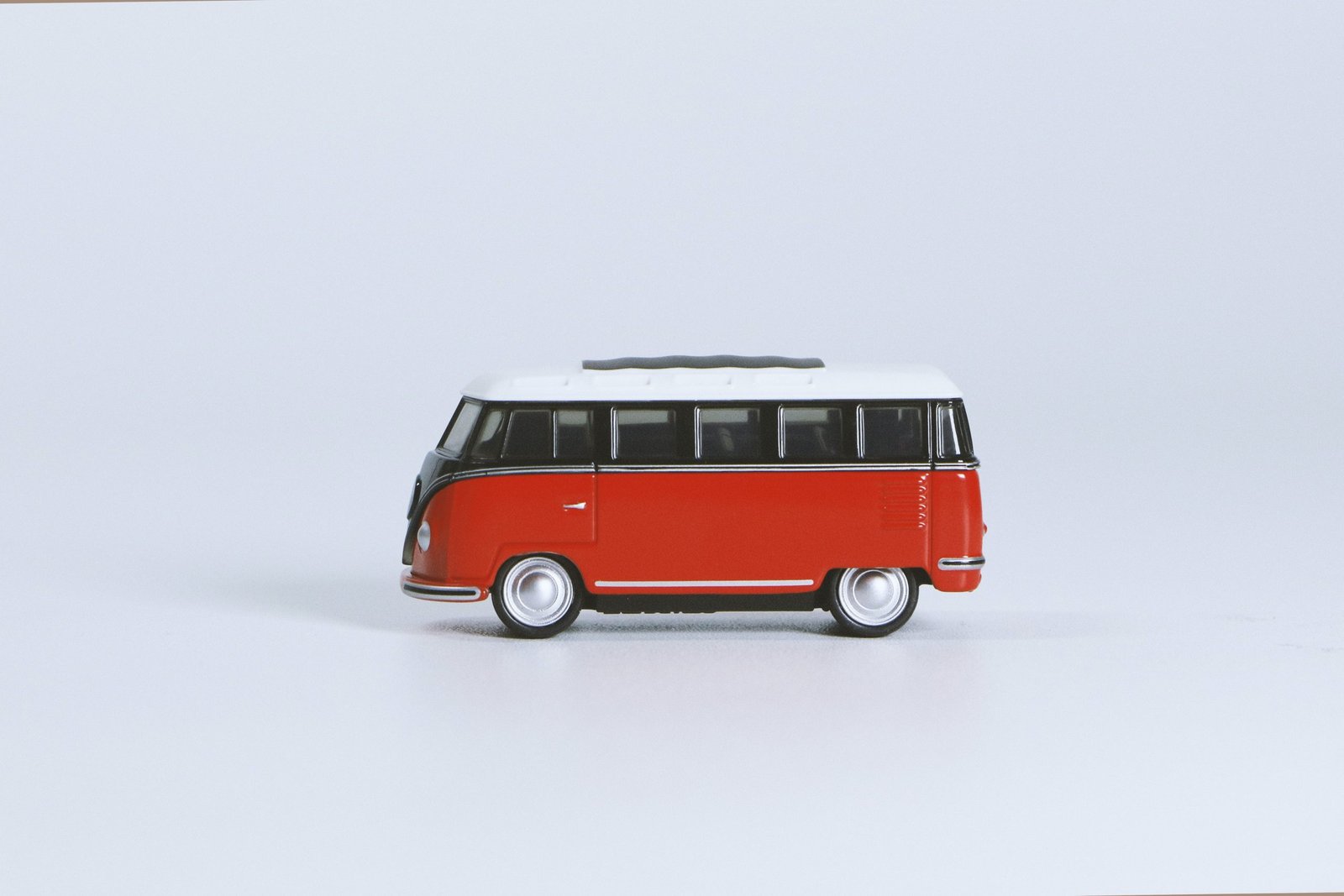
10 Best Electric Campervan Models – Have a Greener Future
April 14, 2021
A Complete Guide to Campervan Parking Laws
April 14, 2021Seeing a lot of ‘buy campervan’ ads? Read this guide before you take the plunge!
It’s hard enough to buy campervan accessories without worrying you’re making a mistake, but what about when it’s an actual campervan you’re choosing to invest your savings in?
Once you search for ‘buy campervan’, you’ll be bombarded with websites that have dazzling pictures of campervans of every shape and size. Even if you stop searching, those images and adverts will follow you onto social media.
If you’re planning to buy a campervan, don’t rush into anything too quickly. Though the adverts are appealing, you’ll want to be sure that you’re making a responsible choice.

Know What You Want
Not all campervans are the same. Some are big, some are small. Some campervans are sleek with modern storage solutions, whilst others are cosy and homely. Some campervans come with everything you need to live in luxury for a fortnight, whilst others are designed for back-to-nature camping trips and have only the most basic features.
Before you get too far into your plans to buy a campervan, ask yourself a few questions. The answers to these questions will help you decide what you want your campervan to be like:
- What’s your budget?
- How much time will you spend in your campervan?
- How often will you go camping?
- Where will you go camping?
- Are you willing to spend time on renovation or conversion?
- How many people will be using the campervan?
- Where will you store your campervan when it’s not in use?
The answers to the questions above should give you plenty of guidance. They’ll help you to think about campervan size, features, fittings and fixtures.
Be aware that the total weight of your campervan, including everything inside it, cannot be above 3500kg if you have a standard UK license. Whichever campervan you decide to buy, it’s only worthwhile if you can drive it!
Is Bigger Always Better?
A spacious campervan has many plus points. With room to move around and store all your belongings, and room to sit indoors when it rains, you’ll be able to go camping more frequently and with less frustration.
A larger campervan can make life easier in many ways. You’ll have room for all your belongings, and plenty of space to relax in your campervan when you’re not out hiking and exploring. That said, there are also many benefits to choosing a smaller vehicle.
Smaller campervans are easier to manage on narrow roads, for example. If you want to use a campervan as your everyday vehicle, smaller ones are best for this purpose. Smaller campervans are usually cheaper to run. You’d be surprised how much you can fit into a small van with a few clever storage solutions.
If you won’t use your campervan much, or you’ll only be using it for short trips like the occasional weekend away, then you might need little more than a place to rest your head and a camping stove to use under a shelter. If you plan to use your campervan for tours of Europe, or for longer holidays at campsites, you’re likely to benefit from a bigger vehicle with all the bells and whistles included.
Know How to Protect Yourself
Sadly, the world has more than its fair share of scammers and rip-off merchants. To avoid their tricks, you need to be aware of your legal rights. If you can go in confident, you’ll be less likely to fall prey to dodgy sales tactics.
The Consumer Rights Act 2015 states that a vehicle you buy must be of a ‘satisfactory quality’ and ‘fit for purpose’. Of course, the expected quality can vary. You can’t expect a very old campervan to be in the same condition as a brand new one straight out of a showroom, but whatever you buy should be up to the task of safely getting you around.
If you’re buying online, Distance Selling Regulations apply. You can cancel your purchase within seven days if you change your mind about buying.
If you buy a campervan from a dealer, and there’s a problem with your vehicle, the dealer has up to 30 days to set things right. If they don’t, you can get a refund for your purchase within the same timeframe.
Protect yourself by keeping everything in writing at every stage of the transaction. Make sure all receipts are provided, along with written evidence of any promises a seller is making.
Know a Vehicle’s History
Even before you go and look at a campervan, you can find out lots about it.
Check a vehicle’s MOT history to find out if it’s passed or failed and to make sure that the mileage looks accurate. You can also do a more in-depth HPI check, or get a free valuation.
A HPI check will stop you from buying a vehicle with outstanding finance, a stolen campervan or a cloned vehicle. It’s highly advisable to pay for this check before you commit to your purchase.
Compare your chosen campervan to others on the market. Look for similar campervans and see the prices they’re selling for. If the price you’re being told seems too good to be true, there could be a reason for this.
Once you’ve physically looked at the campervan, if you’re interested in buying, ask to look through all the paperwork so you can check that everything’s in order. Look for any discrepancies, and ask questions if there’s very little paperwork so you can’t see the vehicle’s history.
Know the Campervan Condition
 Ignore any ‘buy campervan’ ads if you can’t see the camper first! Without seeing them in person and making sure you’re happy with them, you have no idea what you’re going to get. You should take time to test drive the vehicle, and check both the mechanics and the interior and cosmetic details.
Ignore any ‘buy campervan’ ads if you can’t see the camper first! Without seeing them in person and making sure you’re happy with them, you have no idea what you’re going to get. You should take time to test drive the vehicle, and check both the mechanics and the interior and cosmetic details.
Common campervan problems include water leaks, indicated by damp patches or mouldy smells. Look for signs of corrosion, and check that the dashboard lights aren’t providing any warnings. Also check the fixtures and fittings, as some can be expensive to repair. A chipped cupboard door might not be too much of an issue, but if the bed’s broken it can cost a lot more to replace. If there are electrical appliances like fridges in your campervan, ask to see them in action.
Many campervan owners aren’t mechanics themselves, so they don’t always know what they’re looking for. If you’re feeling unsure, you can pay for a pre-purchase inspection carried out by a professional. The AA and RAC both offer vehicle inspections, and though these add to the cost of buying a campervan they could save a lot of money in the long run.
A genuine seller will be happy to have their campervan checked by a professional. If they’re being honest about the campervans condition, they won’t have anything to hide. If a seller bristles at the mention of a professional inspection, this could be an early warning sign that something’s not quite right with the vehicle.
Know How to Pay
Some forms of payment are safer than others. Paying in cash is risky, and debit cards have limited protection. There’s a lot more protection if you use a credit card, so try to choose this option if you can.
Even if you have the cash available, it’s wise to use a credit card to pay for your new campervan. Then, you can use the cash to repay what you owe.
Buying a vehicle on finance gives you protection under the Consumer Credit Act 1974, but watch out for dealers that will try to sell a specific finance agreement. A dealer could be earning commission from specific finance providers, but you might get a better deal if you arrange the finance on your own.
However you pay with you buy campervan vehicles, make sure you get a receipt for every transaction. If you’re paying a deposit and you’ll pay the rest later, make sure that the deposit receipt states clearly how much you still owe. You don’t want to be in a position where you’ve paid a deposit for your vehicle, then the seller changes the vehicle’s price and expects you to pay more once you’ve committed.
Know to Haggle
Many dealers, and private sellers, expect a haggling attempt. If you immediately pay the advertised price, you could be paying more than you need to.
Don’t be afraid to offer less than you saw on the ‘buy campervan’ advert. Assume that the seller has expected this to happen, so you can try and reduce the price by offering less than they’ve asked for. The worst that’ll happen is that the seller refuses, though most will be eager to make the sale and will happily reduce the price you’ll pay.
Check for a Habitation Certificate
A habitation check is a detailed and thorough check of a campervan’s condition. This test can determine if there are safety problems, and if important fixtures (like gas, water and electricity) are working as they should be. The habitation check can ensure that ventilation is effective, as well as making sure that the bodywork is in good condition.
Though habitation checks are not legally required, a good dealer will agree to get this check done if you ask them to provide a habitation certificate.
Know What Counts as a Campervan
A vehicle that’s registered as a campervan provides some additional benefits. Campervan insurance is typically cheaper than van insurance in general. You can also save money elsewhere (like at toll roads and some ferry crossings), though not all vehicles can be officially registered as campervans. For more information about campervan insurance, head to our FAQ.
When buying a campervan, check the paperwork thoroughly to make sure you know exactly what you’re buying.
To be legally classed as a campervan, a vehicle must be easily identified externally. It should have obvious signs like motorhome-style graphics and awning bars. Vehicles must also have at least one window as part of the living space.
There are also requirements for permanent internal fixtures, though these aren’t always checked as carefully as you might expect. There should be a permanent bed at least 6ft long, either always out or fold-away. There should be a door providing direct access to the living space, and a table with seats (though this can be detached when not in use). The table must have a permanent mount, on the floor or side walls, even if you remove the table itself when you’re not sitting down for breakfast.
To be classed officially as a campervan, a vehicle needs permanent storage. It should also have some cooking facilities, as a permanent feature.
You can still use a campervan in just the same way, if it’s registered simply as a van. However, when you’re buying it’s important to know exactly how a vehicle is registered. This won’t affect how you use it, but could give clues about conversion standards and what costs you might expect to have in future. If you want to register a vehicle as a campervan, and it isn’t already registered as one, you may have some work to do first.
On Collection Day
Buying a campervan isn’t always a quick and easy process. In fact, it’s best not to rush. Take your time, so you can be sure that you’re happy with your buying decision. If you feel rushed, you’re more likely to make some hasty and expensive mistakes.
As you might be waiting a while between your first inspection and your collection day, it’s important to make sure that the vehicle you’ve chosen is still in the same condition. When you go back to get your new campervan, double check what you’ve already checked and make sure that nothing has changed. Look again for signs of damp or damage, even if things looked great the first time.
You should be able to drive away happy with the campervan you’ve bought, so take your time and don’t be afraid to become a difficult customer.




